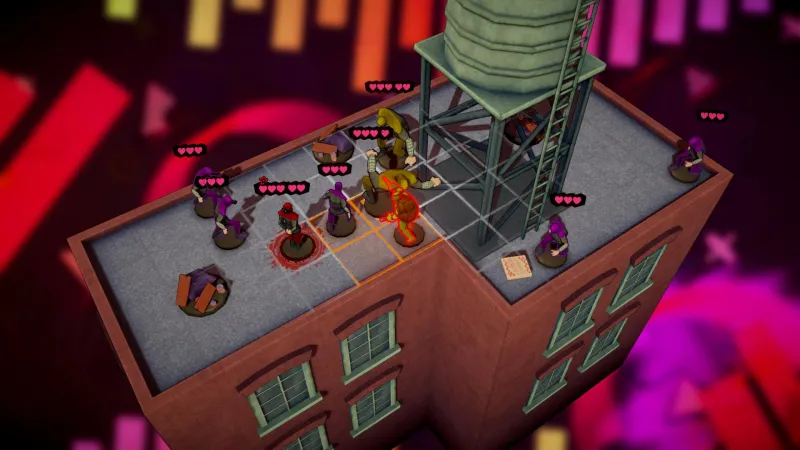
On September 11, most of the over 4,000 employees at Ubisoft Montreal returned to office in Montreal’s Mile End for the first time in three years. But hardly anyone seems happy about it, and many are furious at what they’re calling broken promises from Ubisoft leadership.
Since Ubisoft Montreal announced that employees would be returning to the office beginning September 11, the studio’s intranet has been lighting up with posts ranging from mild concern to outright anger. IGN has viewed a number of comments on the situation across multiple Ubisoft internal postings, including over 270 comments on the announcement post alone – almost all of which were negative.
Many of the comments list numerous issues employees have historically had working from the office before as reasons not to return: noisy calls in an open office, increased expenses, and a lack of sufficient equipment or accommodations. But the anger also runs deeper than the inherent problems with returning to the office. Amid a wider company culture of layoffs, game cancellations, and abuse allegations, this mandated office return seems to be the final straw for a number of employees who feel that Ubisoft management’s indifference to its workers has gone on long enough.
Broken Promises
Ubisoft’s overarching return to office plan across all its studios was first kicked off in the summer of 2021, roughly coinciding with widespread availability of the first vaccines against the COVID-19 pandemic. But in Montreal, where Far Cry 6, Roller Champions, For Honor, and multiple Assassin’s Creed games were made, employees tell IGN that the company’s publicly touted plan simply…never happened.
Instead, they say they were reassured repeatedly over two years that they could remain 100% remote long-term, with many employees making major life decisions or even accepting job offers assuming they could work from home for the foreseeable future. IGN has viewed a number of documents circulated on the company intranet over the last few years that seem to back up this belief. In one example, Ubisoft promises a “hybrid, flexible working environment” where “100% remote work will be possible depending on various criteria, such as productivity and impact on the team, as well as the nature of the work being done.”
But now that’s changing. Beginning September 11, 2023, Montreal employees are expected to work a minimum of two days a week out of the office. The requirement is mandatory for all employees, with exemptions only made for employees with explicit needs “once all other solutions have been explored.”
The announcement immediately sparked anger within the studio, with posts on the company’s intranet listing numerous issues employees have historically had working from the office before as reasons not to return: noisy calls in an open office, transit costs, and a lack of sufficient equipment or accommodations for specific accessibility needs and working styles. A handful of employees brought up the quality of the Montreal office specifically, mentioning past issues such as leaks, rats, bugs, and dearth of typical office perks such as free coffee. Several raised health concerns, citing ongoing fears about the spread of COVID-19. And many developers accused Ubisoft of breaking its promises around 100% work-from-home, with multiple employees saying they had either accepted a job at Ubisoft or made a major life change (such as buying a house outside of Montreal) believing it was a permanent policy.
One key theme in many comments is a broader lack of trust in the company to provide good working conditions and keep its promises over time. It’s been three years since the company was rocked with allegations of a toxic work environment, but some employees have publicly claimed these allegations have yet to be sufficiently addressed. On top of that, the company has now done multiple rounds of layoffs just this year amid much wider financial cuts, cancelled a number of both announced and unannounced games, and seen multiple others release and underperform. With that much chaos so readily apparent externally, it’s unsurprising that a Montreal return-to-office renege is serving as the final straw for many.
Several employees have gone as far as to speculate that the change was effectively a soft layoff on the part of Ubisoft in an effort to assuage said recent financial woes. By introducing an unpopular policy, they suggested, Ubisoft could push employees to quit and reduce headcount without having to pay severance or deal with other potential financial drawbacks of a mass layoff.
Multiple commenters pointed out that Ubisoft Montreal has long had agreements with the Quebec and Montreal governments to bring jobs and foot traffic to Montreal, in return for significant tax credits that have driven wider industry growth in the province. But the program has historically been a controversial one, and its merits may well be under scrutiny again amid Montreal’s wider struggles to rejuvenate its downtown post-pandemic and a broader trend in worker disinterest in return to office.
“The blog post cited things like ‘Ubisoft culture’ and ‘collaboration’ as the reasons we needed to return to the office, but never once explained what problems a lack of these things had caused, or what steps had been taken to alleviate them before turning to RTO as the solution, or what kind of changes management expects to see as a result of RTO and how we are to measure the success of this plan,” one employee told IGN. “The lack of substance about why we are doing this and how can we know if it’s working has led a lot of people to believe the reasons we are being given are lies and the management are afraid to say the real reasons out loud.”’
An Imminent Exodus?
While employees are being encouraged to speak with individual managers for accommodations, Ubisoft’s internal documentation has implied that exemptions “will only be considered once all other solutions have been explored.” Meanwhile, multiple employees IGN spoke to have attested that Ubisoft’s system for finding these solutions isn’t working well thus far. One said that employees who have been using standing desks or other specific equipment from home are unable to get what they need in-office without “a fight and 20 doctor’s notes”.
What’s more, the accommodations system seems to be bottlenecking quickly due to a flood of requests, and not enough people to fulfill them. Another person noted that Ubisoft leaders appear to be delegating responsibility managing employee frustration to middle managers, who seem largely powerless to address the anger.
IGN reached out to Ubisoft for comment on this story, and received the following statement in response:
Like many companies in entertainment and tech, we are asking our colleagues to come back to the office for key moments identified by each team. We are convinced that the synergy, in-person discussions, rapid iterations, and a sense of belonging that happens more in person will help us be more effective and agile together, and achieve our business goals.First announced early in June, the hybrid mode goes into place on Monday, September 11, and we are accompanying our colleagues through these changes, giving them additional flexibility over the next eight weeks or more to adapt. Open and ongoing conversations in addition to extensive individual accommodation and arrangements are currently underway to ease this transition and the impact on everyone’s well-being, which remains our priority to continue to deliver great games.
While it remains to be seen how the unpopular return to Ubisoft Montreal’s office will impact the studio long-term, one possible model can be found over at Blizzard. Like Ubisoft, Blizzard has similarly been embroiled in a series of very public upheavals over its work culture, seen a wave of employee collective action, and laid off hundreds over the last few years. And then, like Ubisoft, Blizzard instituted its own similarly unpopular forced return-to-office earlier this year. So what happened to Blizzard? Well, according to Blizzard developers on social media, the RTO policy resulted in a mass exodus of talent so impactful that at one point that the company was creating “crisis maps” of what it could and could not ship with the people it had left.
Whether or not Ubisoft will follow suit remains to be seen, though a number of employee comments implied or even outright stated that the policy change had sparked them to look for work elsewhere. Recent history, too, indicates that employees are fed up to the point of departure. With Ubisoft as a company grasping for a return to form after multiple sales disappointments, delays, and cancellations, one wonders how much longer it can afford to enrage and upset its largest and most prolific development studio.
Rebekah Valentine is a senior reporter for IGN. Got a story tip? Send it to [email protected].







